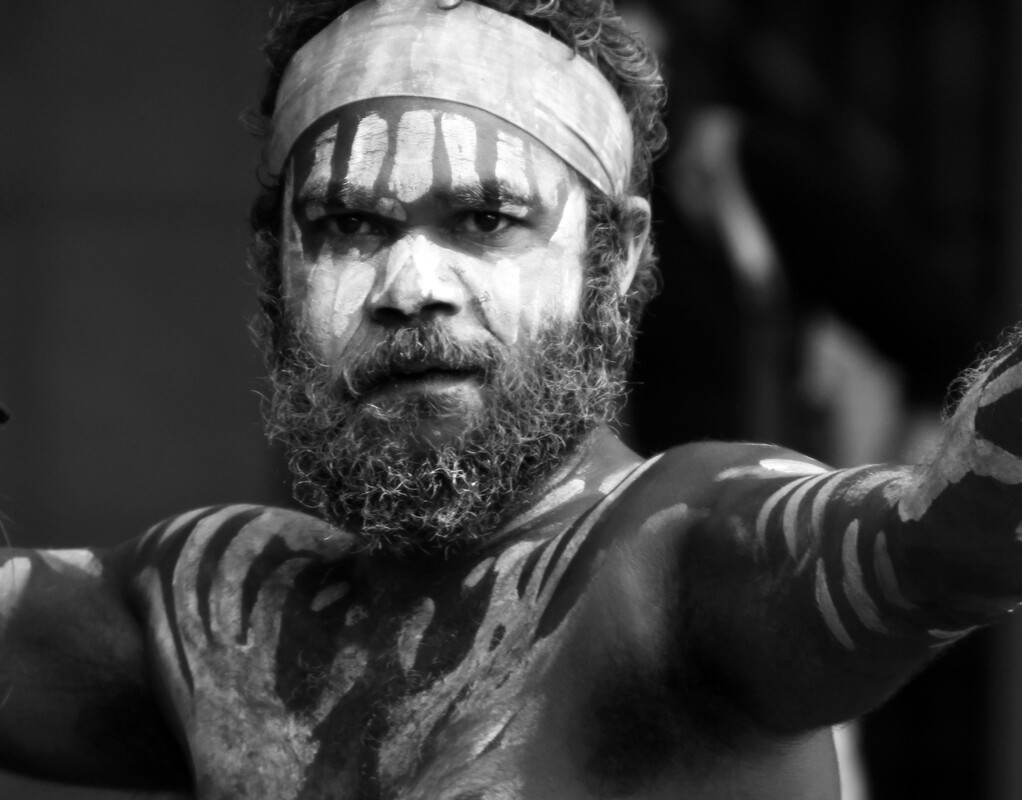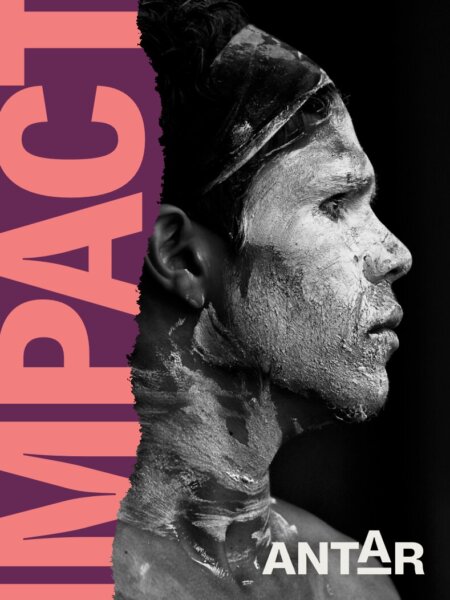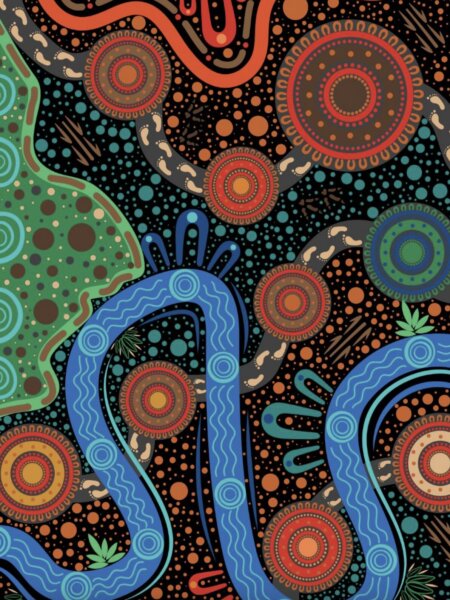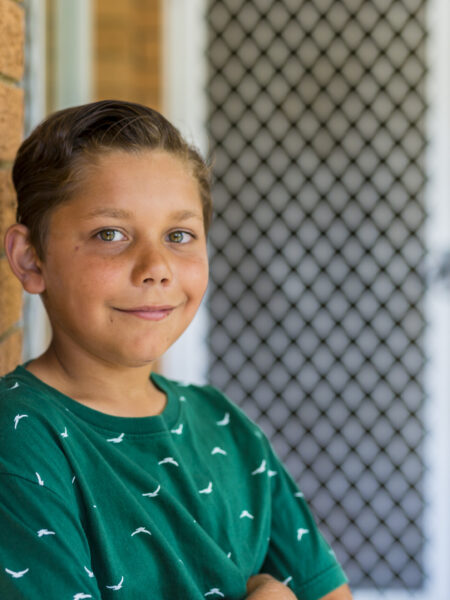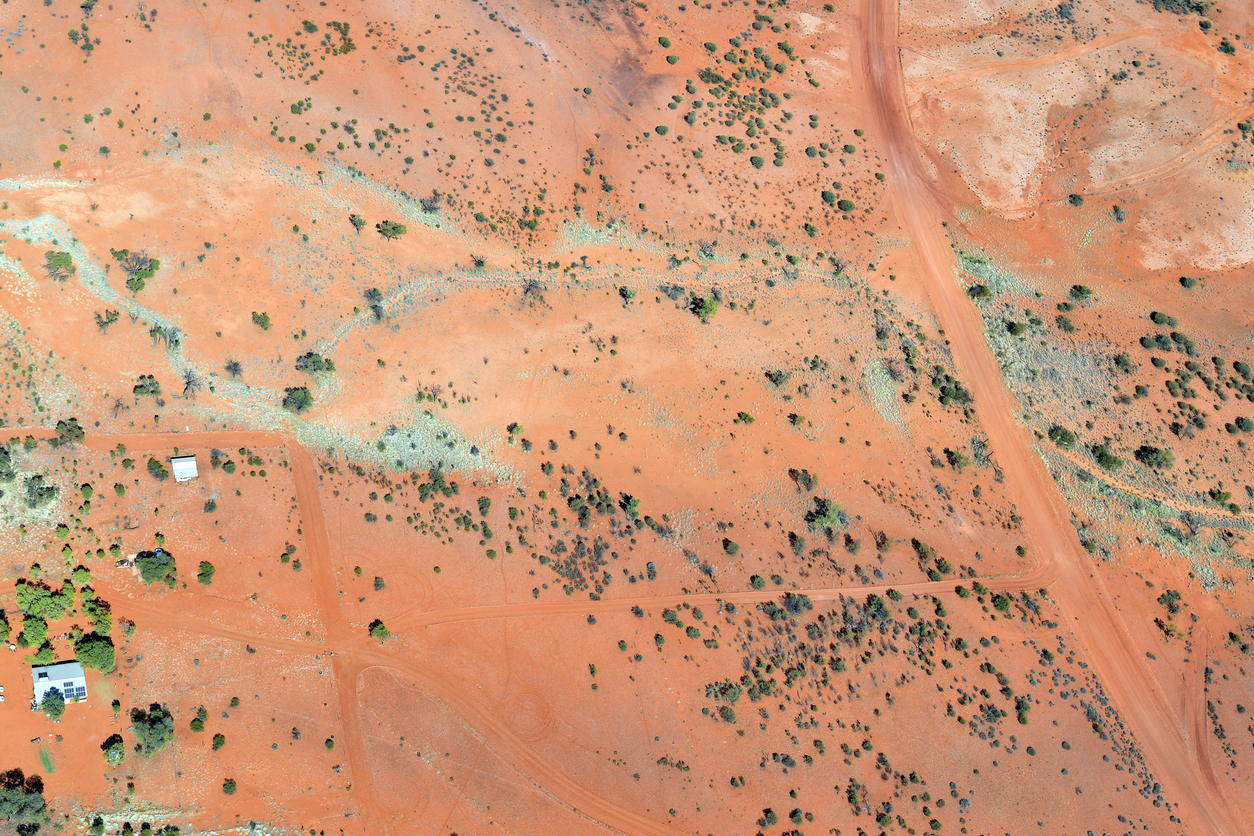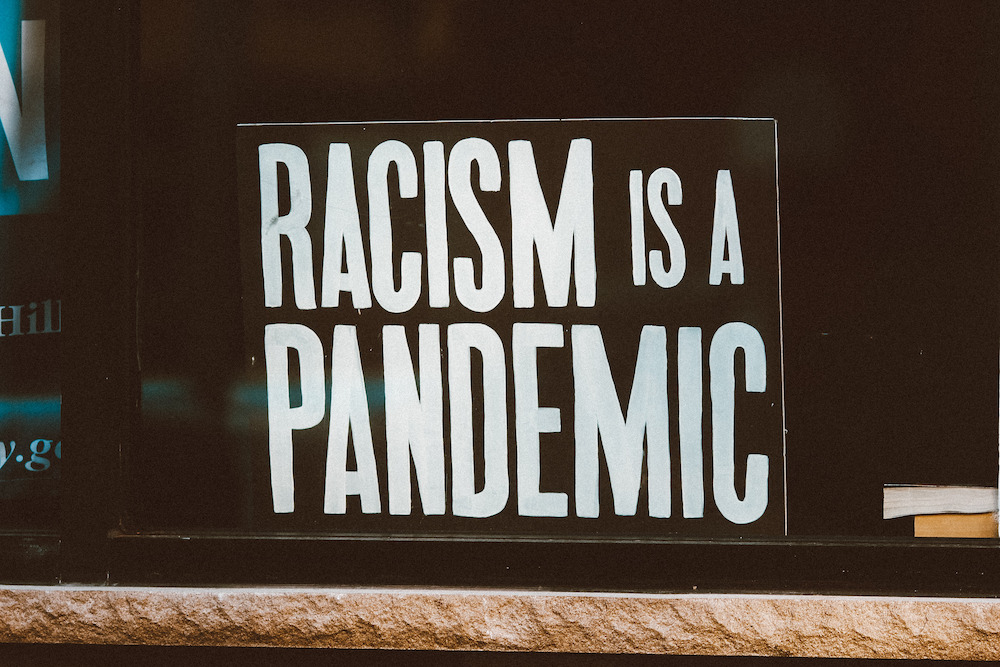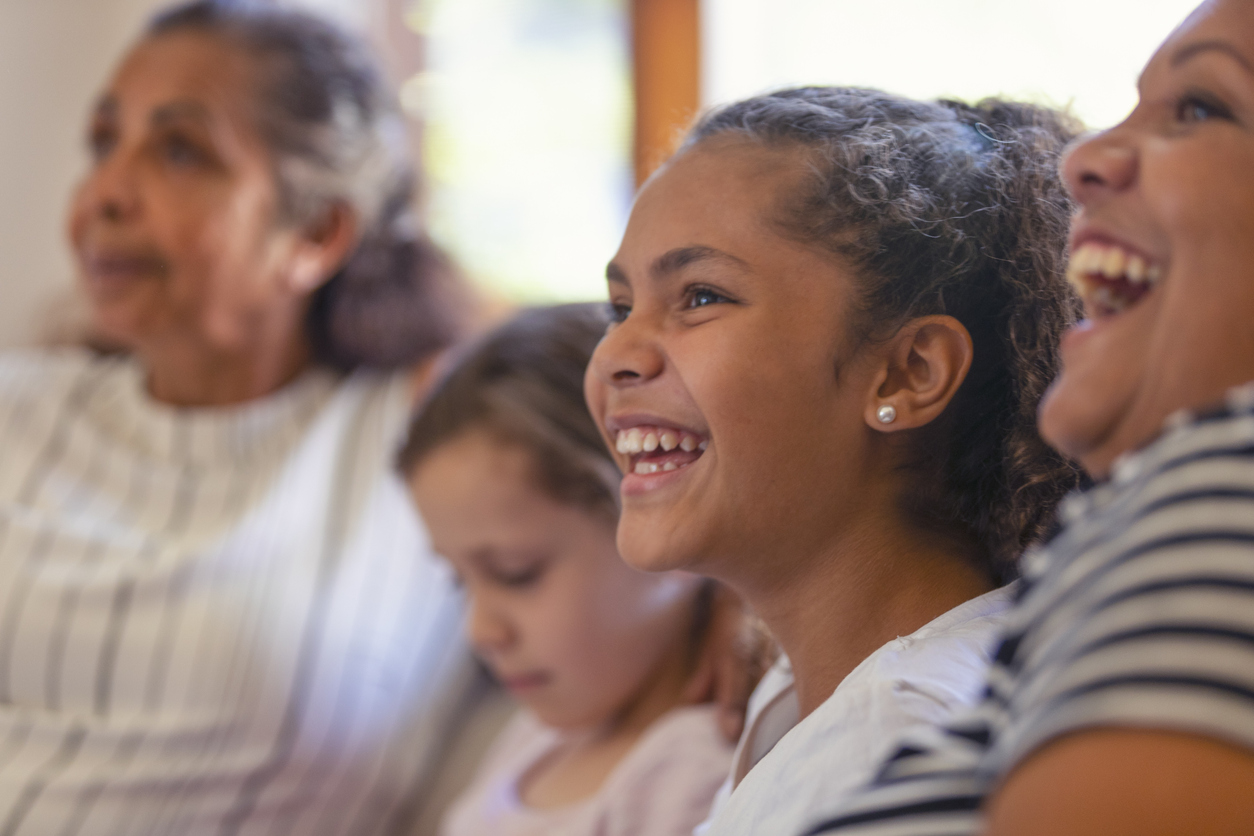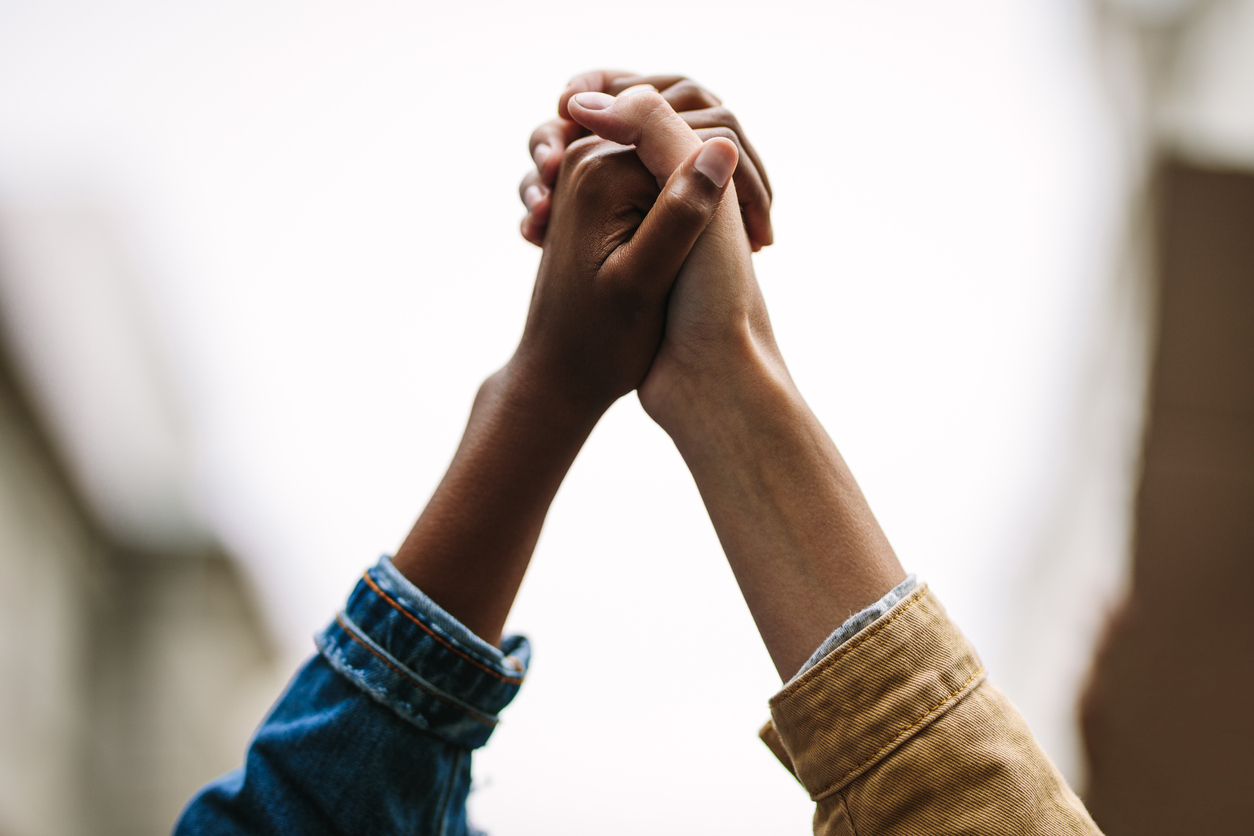Though racism in Australia is not limited to Aboriginal and Torres Strait Islander peoples, they have a unique experience of racism as this continent’s First Peoples who continue to endure legacies of colonisation. Racism in Australia is not just historical – it continues to shape our society.
Racial discrimination as it relates to First Nations people in Australia is defined as: ‘Situations and/or places in which a person was treated unfairly. Includes, but is not limited to: being treated rudely, as if they are inferior or with disrespect, ignored, insulted, harassed, stereotyped or discriminated against, or unfair assumptions are made about them. Refers only to those situations and/or places in which the person was treated unfairly because of their Aboriginal or Torres Strait Islander origin.’
Though scientists globally have disproven race as a biological category – arguing instead that it should be understood as a social construct – assumptions about fundamental genetic differences between people have deep social and historical roots which continue to fuel racist beliefs and behaviours. Discrimination and prejudice based on these assumptions play out across the world, and unfortunately Australia is no exception.
Racism is ‘everywhere’
According to the newly released Call It Out Annual Report, which covers reports of racism toward Aboriginal and Torres Strait Islander peoples for the period 21 March 2022 to 20 March 2023, more than half the incidents were witnessed or experienced in person (51%), more than one in five incidents (23%) were witnessed or experienced in traditional media or social media and a further 18% were witnessed or experienced as institutional racism. The report also revealed that the most common types of racism were negative attitudes or stereotyping and discrimination.
A recent study available in the Journal of Australian Indigenous Issues revealed that three in four people unconsciously hold a negative prejudice against Aboriginal and Torres Strait Islander peoples. In a study of young people in the ACT completed by the ACT Human Rights Commission, 11 out of 12 young people who identified as Aboriginal and Torres Strait Islander said they had experienced racism.
The 2022 Kep Enderby Memorial Lecture highlighted the growing rate at which online racism occurs unmediated on social media platforms and the need for legislation to protect users from experiencing hate crimes. Hate crimes and unmediated racism impact significantly on the wellbeing of individuals and communities, with the lack of hate crime laws in Australia leaving the burden of reporting discrimination and seeking justice on the individual. This gap in legal framework also fails to hold online platforms to account for policies which fail to provide any real protection or remedial actions.
The Centre for Resilient and Inclusive Societies explains that there are significant differences in bias indicators that are due to the distinct historical and socio-cultural positioning of Aboriginal and Torres Strait Islander peoples within the context of settler-colonialism in Australia. These biases can be revealed through individual remarks being made based on visual appearances or negative stereotyping of a First Nations person or community. They can also be revealed through institutional policies and procedures which relate to the employment of First Nations people or matters which affect them or as a result of working within a specific space.
Racial Discrimination Act
A key document in Australia that serves to protect people against discrimination and racial bias is the Racial Discrimination Act 1975 (RDA). This particular document has been adopted in Australia to protect individuals against the harms of discrimination on the basis of race, colour, descent or national or ethnic origin.
Despite attempts by parliamentarians and specifically the federal government’s attempt to repeal section 18C of the RDA in 2014, a FairFax poll in March 2014 found that 88 percent of people agreed that it should remain unlawful to offend or humiliate someone on the basis of their race. Whilst debate continues on the limitations that 18C poses to freedom of speech there remains consensus around the need for this section to maintain the ‘balance between freedom from racial vilification and freedom of speech’. Attempts to water down the Racial Discrimination Act threaten to increase the acceptability of discrimination and racism in Australia.
Despite the existence of the RDA, the Australian Reconciliation Barometer 2022 report highlighted that racism continues to impact on the right to live a life free from racial discrimination.
Bla(c)k Lives Matter
With the death of George Floyd in May 2020 and the subsequent Black Lives Matter global movement, there was renewed focus on racism in Australia along with the long-standing issues of criminalisation, police brutality, over-incarceration, and injustice experienced by Aboriginal and Torres Strait Islander people. The experience of inequality and discrimination that marks so much of the racial discrimination facing First Nations people in Australia has continued despite the Royal Commission into Aboriginal Deaths in Custody (RCIADIC) being held thirty years ago, a process that is widely considered to be a landmark truth-telling opportunity for Australia.
The Final Report of the RCIADIC included more than 330 recommendations on structural improvements relating to health, education, economic opportunities, housing, land needs and reconciliation that would have had significant and lasting positive effects on the racial discrimination disproportionately faced by First Nations peoples. Instead, most of the recommendations were ignored or only partially implemented. Three years on from the Black Lives Matter marches, First Nations deaths in custody are at an all-time high, driven in many cases by deep-seated racism in policing and prisons.
Racism and the ‘Voice’
In both the lead up to and after the October 2023 Voice Referendum, the depth and breadth of Australia’s racism problem became impossible to ignore. In a post-referendum statement from First Nations leaders, groups and individuals who supported the ‘Yes’ Campaign, First Nations groups made clear that the scale of misinformation being deliberately used by the ‘No’ campaign “unleashed a tsunami of racism against our people”.
Rueben Berg, co-chair of the First Peoples Assembly in Victoria, told Al Jazeera the campaign waged by opposition leader Peter Dutton was emboldening those with racist views. Berg revealed that since Dutton announced his party would campaign for a ‘No’ vote, First Nations Peoples both in the Assembly and across the country more broadly had seen “a dramatic rise in racist abuse and hatred directed at First Peoples, both online and in everyday life”.
Monica Barolits McCabe, an Executive Director at the National Aboriginal Community Controlled Health Organisation (NACCHO), said that a dramatic spike in racism and discrimination towards First Nations people had seen an increase in suicide rates and calls for support amongst communities across the nation. 13YARN, a national crisis support line for First Nations Peoples, reported a 108 per cent increase in callers reporting abuse, racism, and trauma between March and June.
In an opinion piece by Race Discrimination Commissioner Chin Tan that was published a week before the vote was held, Tan stated that however the cards fall in the voice referendum, one thing is for sure: our next urgent national priority is tackling racism. Tan went on to write:
…we have heard hurtful rhetoric and seen bigoted and racist stereotypes left unchallenged and people labelled as “un-Australian”. Misinformation and disinformation have run rampant, bringing racism in this country to the fore… This monster has no place in our society. It not only harms First Nations Peoples, whose continued collective suffering should be enough of an impetus to inspire change. But for far too many Australians across a multitude of backgrounds, racial discrimination remains a daily occurrence.
Tan concluded that Australia urgently needs a national anti-racism framework which is backed by bipartisan support. ANTAR has long supported the establishment of an anti-racism framework and continues to back the campaigns calling for the same.
